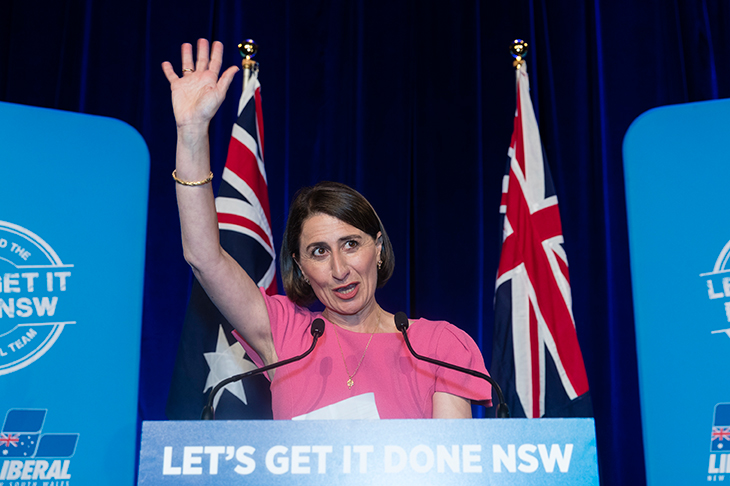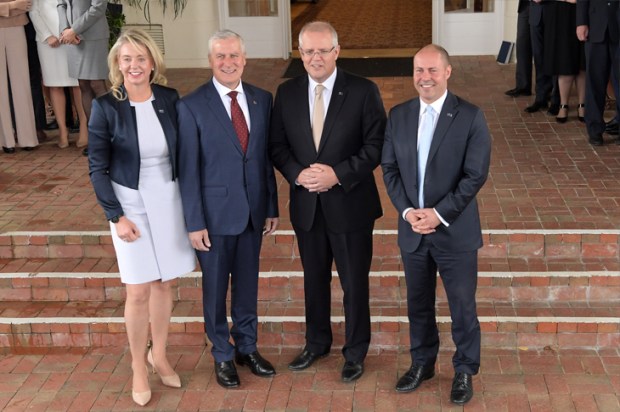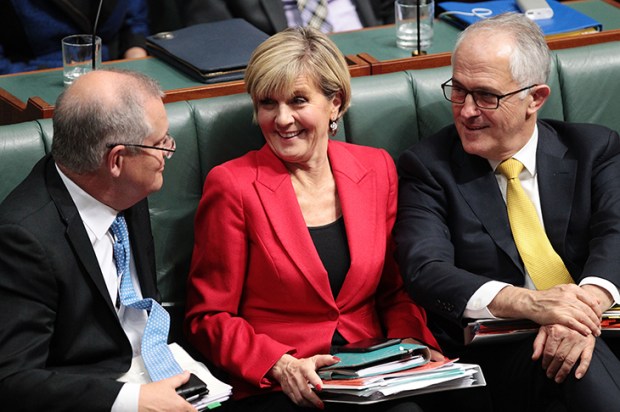The return of the Berejiklian government demonstrates that good governments can win a third term, despite self-inflicted wounds. That will buoy the Morrison government, even though it remains a long shot to win the federal election in under two months’ time.
In New South Wales, the Coalition has lost some country seats, but not to the Labor party. The really significant fact is the rise of minor parties, especially the Shooters, Fishers and Farmers in the bush, but also One Nation, especially in outer metropolitan seats.
Voters weren’t especially enthusiastic about the Coalition but that didn’t translate into support for the ALP. Rather it became support for parties that thought the government had been too wishy-washy on key issues: not enough water for people in the bush, and not enough transport and too much over-development for people in the city.
Like Liberal-National governments everywhere, the Coalition in NSW was good at government but poor at politics. The government ran public schools, public hospitals and public transport in the main efficiently. It gave the police strong support. It got the balance between conservation and development more or less right in urban planning. It brought the budget under control and resisted the extremes of political correctness on climate change and gender fluidity. Above all, it unleashed the biggest infrastructure boom in the state’s history; and, despite mega-projects being incomplete, won kudos for at least having a go.
On the other hand, the greyhound ban was the disaster to be expected when right-wing governments pursue left-wing policies; any economic benefits from local government amalgamation weren’t worth the political pain; the CBD tram produced vast disruption for hardly any benefit for commuters; and the NSW government has had three leaders in eight years, albeit via resignation rather than political assassination.
A week out from polling day, Gladys Berejiklian was in big trouble. But a disastrous series of rookie errors from the NSW Labor leader put the Liberal-led government back into the driver’s seat.
As the federal government contemplates its own date with voters in less than eight weeks’ time, there are key differences as well as some similarities. The Liberal National government has kept Australia safe and the economy strong. It has secured our borders. It has prevented major terrorist attacks. It has made some overdue decisions like building the western Sydney airport and has helped to fund the infrastructure boom. Although the public is undoubtedly feeling cost of living pressures, the economy has created over a million new jobs under a government that’s tried to be ‘open for business’. It’s handled the core functions of the national government competently, without policy disasters such as the school-hall and pink-batt programmes.
On the other hand, having let climate change policy destabilise our energy supply, it has – as yet – no effective response to the continuing withdrawal of baseload power and its impact on manufacturing. And it’s run the future submarine project as a jobs racket for Adelaide rather than as an urgently needed strategic deterrent as the world’s balance of power is shifting against us.
The federal government’s basic problem, though, is that it’s asking voters to have more confidence in it that it had in itself – with two bloody leadership coups in just five years.
By ditching the so-called National Energy Guarantee (NEG), the federal government resolved to put reliability and affordability ahead of emissions reduction; but committing to build Snowy 2.0 but not Hazelwood 2.0 makes it seem that it’s still biased against coal. And spinning a tiny reduction in permanent immigration as a cut of 120,000 over four years makes the government look tricky.
Then there’s the inability or unwillingness of Prime Minister Scott Morrison to give a factually accurate and politically credible account of why and how he ousted Malcolm Turnbull.
As well, after nearly six years as opposition leader and relentless scrutiny via innumerable interviews, media conferences and public meetings, Bill Shorten is unlikely to make the kind of elementary last-week-of-campaigning mistakes that Michael Daley made when the heat was on. The biggest difference of all is that, unlike Scott Morrison, Gladys Berejiklian did not go into the election as already a minority government.
It’s much easier to know what the Morrison government is against than what it’s for, other than motherhood aspirations like keeping the country together. Yes, Scott Morrison is ‘on the job’ from early in the morning until all hours of the night, and is clearly a tribal Liberal in the way Malcolm Turnbull never was; but other than the much-anticipated further tax cuts to be announced in the April budget, he doesn’t have a lot to present as a positive reason to vote Liberal.
If Scott Morrison is prepared to abandon his habitual political caution and announce some bold initiatives: like a new coal-fired power station, a deep cut in immigration, the deregistration of the construction division of the CFMEU, or lifting the legal ban on nuclear energy, it’s just possible that he can win back voters toying with minor parties on the right. It’s true that Shooters, Fishers and Farmers party voters and One Nation voters are not orthodox conservatives. But many of them previously voted for the Coalition and could be won back by a government that has more obvious convictions for which it is ready to fight.
It’s noteworthy that former PM Malcolm Turnbull was prepared to give an endorsement video for a state Liberal candidate – even though he had not done so for his successor in the federal seat of Wentworth. We can count on more pointed interventions from him, especially if Morrison looks like he might pull off an unlikely victory.
Probably the strongest factor against a Coalition comeback is Turnbull’s propensity to sabotage his successor’s campaign just when it might be picking up.
Ross Fitzgerald is Emeritus Professor of History & Politics at Griffith University. He is the author of 40 books, most recently the political/sexual satires ‘So Far, So Good’ and ‘Going Out Backwards: A Grafton Everest Adventure’, both published by Hybrid in Melbourne.
Got something to add? Join the discussion and comment below.
Get 10 issues for just $10
Subscribe to The Spectator Australia today for the next 10 magazine issues, plus full online access, for just $10.
You might disagree with half of it, but you’ll enjoy reading all of it. Try your first month for free, then just $2 a week for the remainder of your first year.














Comments
Don't miss out
Join the conversation with other Spectator Australia readers. Subscribe to leave a comment.
SUBSCRIBEAlready a subscriber? Log in